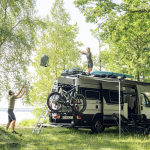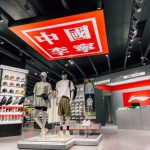As part of People for Bikes’ plan last summer to take a firm stance on fighting racial injustice, it conducted an industry-wide survey, benchmarking member experiences, perspectives and competencies on racial and mobility justice.
“We know that bikes won’t solve racism in America, but in order to help solve the bigger issue, we can start with where we have the most influence,” said People for Bikes CEO Jenn Dice. “The survey revealed broad interest to invest time and resources in supporting racial equity across individual organizations and the industry at large.”
Among the survey’s findings:
- 83 percent of industry members believe that it is valuable to examine and discuss the impacts of race on its work in the bike industry and advocacy.
- 71 percent of industry members are actively involved in advancing racial equity in their organizations, projects, and teams.
- 49 percent would become more active in advancing racial equity if they had more information to help them understand where to direct their efforts.
- 55 percent do not think that the bike industry is equipped to participate in internal and external conversations regarding race.
SGB Executive asked People for Bikes executives to share light on its findings.
“From our internal bike industry poll, 83 percent believe in DEI work and think it’s valuable to review the impacts of race on the industry and bike advocacy,” said Dice. “A strong 71 percent of respondents are actively involved in their organizations and about half are looking for advice on where to direct their efforts. At the same time, they don’t feel equipped to have the conversation and need tools to help make sure their work is meaningful.”
The key takeaway, said Dice, is that PFB’s needs to help. “We will partner with Camber Outdoors and other groups doing impactful work in this space to help our industry and help give them the tools to make change internally, learn from each other and other industries. We’ll also continue and expand our mobility justice work with cities, in bike advocacy, in the bike-share space, and internally. Diversity, equity and inclusion work will be a steady and consistent part of our industry organization work.”
As for the 55 percent not thinking the bike industry is equipped to participate in conversations regarding race, the group views that as a springboard to help.
“We have the opportunity to equip industry partners with anti-racism and mobility justice conversations, resources and training,” said People for Bikes Director of Local Innovation Sara Studdard. Added Dice: “We have a lot of work to do to listen, learn and expand the bike industry to new audiences and welcome more people into bicycling, the industry and bike advocacy. The survey results will help us benchmark progress over time.”
As part of broadening its lens to diversity, equity and inclusion, the group also plans to organize its first DEI industry subcommittee meeting in December and host seven more through the end of 2021. “It will be just one piece of our strategy to build a better world through bikes,” said Dice, adding it should provide space for industry leaders to learn, listen and take action to make their companies, the industry and bicycling more diverse, equitable and inclusive.
Photo courtesy PFB
















